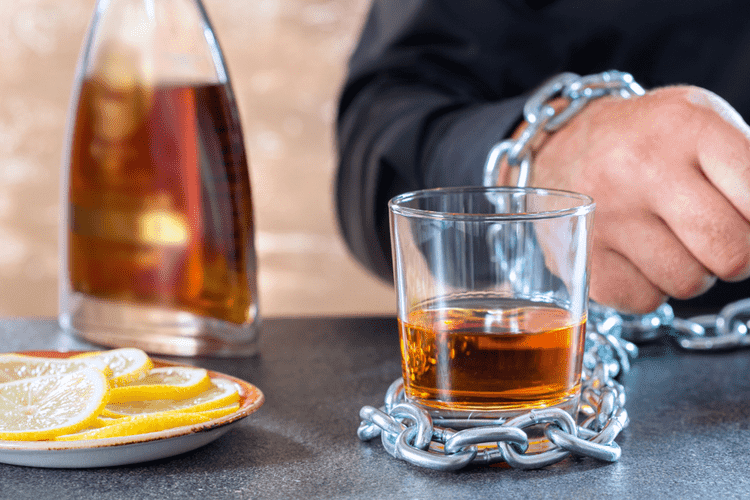Alcohol use disorder Diagnosis and treatment
Some are surprised to learn that there are medications on the market approved to treat alcohol dependence. The newer types of these medications work by offsetting changes in the brain caused by AUD. Due to the anonymous nature of mutual-support groups, it is difficult for researchers to determine their success rates compared with those led by health professionals. When asked how alcohol problems are treated, people commonly think of 12-step programs or 28-day inpatient rehab but may have difficulty naming other options.
Risk factors

The sooner you recognize there may be a problem and talk to your healthcare provider, the better your recovery chances. Your treatment setting will depend on your stage of recovery and the severity of your illness. You may need inpatient medical (hospital), residential rehabilitation (rehab), outpatient intensive therapy or outpatient maintenance.
Duration of Alcohol Use Disorder

Your health care provider or mental health provider will ask additional questions based on your responses, symptoms and needs. Preparing and anticipating questions will help you make the most of your appointment time. Genetic, psychological, social and environmental factors can impact how drinking alcohol affects your body and behavior.
- As more medications become available, people may be able to try multiple medications to find which they respond to best.
- In some people, the initial reaction may feel like an increase in energy.
- For a woman, it is after about 4 or more drinks within a few hours.
- This is not an uncommon concern, but the short answer is “no.” All medications approved for treating alcohol dependence are non-addictive.
- Relationships may deteriorate, as their social circle narrows to other drug or alcohol users.
Treatment for alcohol use disorder
Studies show that people who are alcohol dependent are two to three times as likely to suffer from major depression or anxiety over their lifetime. When addressing drinking problems, it’s important to also seek treatment for any accompanying medical and mental health issues. Though at-risk and binge drinking can result in a range of adverse consequences, not all people who engage in these kinds of unhealthy alcohol use have alcohol use disorder. In general, alcohol consumption is considered too much—or unhealthy—when it causes health or social problems. This broad category of alcohol consumption comprises a continuum of drinking habits including at-risk drinking, binge drinking, and AUD.
Furthermore, the greater the abuse or neglect experienced, the more severe their drinking problem was. Therapy can help people who suffered as a child to address those challenges and develop healthier coping skills. Just as some people with diabetes or asthma may have flare-ups of their disease, a relapse to drinking can be seen as a temporary setback to full recovery and not a complete failure. Seeking professional help can prevent relapse—behavioral therapies can help people develop skills to avoid and overcome triggers, such as stress, that might lead to drinking. Most people benefit from regular checkups with a treatment provider. Medications also can deter drinking during times when individuals may be at greater risk of relapse (e.g., divorce, death of a family member).
- They are prescribed by a primary care physician or other health professional and may be used alone or in combination with counseling.
- Group therapy, led by a therapist, can give you the benefits of therapy along with the support of other members.
- It involves heavy or frequent alcohol drinking even when it causes problems, emotional distress or physical harm.
- A BAC from 0.35% to 0.80% causes a coma (unconsciousness), life-threatening respiratory depression and possibly fatal alcohol poisoning.
Treatment Options
People who drink too much alcohol are at risk of developing a host of health conditions and disorders including certain types of cancer, liver disease, and heart disease. Excessive alcohol consumption can damage the brain and other organs, and it also increases the chances of developing sleep problems, depression, and other mental health problems. Alcohol can interfere with a person’s ability https://fintedex.com/top-5-advantages-of-staying-in-a-sober-living-house/ to care for their other medical conditions or make other medical conditions worse. All three of these therapies have demonstrated their effectiveness. Psychologists can also diagnose and treat these “co-occurring” psychological conditions. Further, a psychologist may play an important role in coordinating the services a drinker in treatment receives from various health professionals.
- Some are surprised to learn that there are medications on the market approved to treat alcohol dependence.
- When asked how alcohol problems are treated, people commonly think of 12-step programs or 28-day inpatient rehab but may have difficulty naming other options.
- Alcohols are differentiated based upon the presence of the hydroxyl group attached.
- The percentage of alcohol-attributable deaths among men amounts to 7.7 % of all global deaths compared to 2.6 % of all deaths among women.
- Although there is no single risk factor that is dominant, the more vulnerabilities a person has, the more likely the person is to develop alcohol-related problems as a result of alcohol consumption.
Early Symptoms
Problem drinking has multiple causes, with genetic, physiological, psychological,and social factors all playing a role. For some alcohol abusers, psychological traits such as impulsiveness, low self-esteem and a need for approval prompt inappropriate drinking. Some individuals drink to cope with or “medicate” emotional problems.

Others are outpatient programs, where you live at home and go to the center for treatment. You doctor also can refer you to a treatment center or experts who can help. Alcohol use disorder is what doctors call it when you can’t Top 5 Advantages of Staying in a Sober Living House control how much you drink and have trouble with your emotions when you’re not drinking. Some people may think the only way to deal with it is with willpower, as if it’s a problem they have to work through all on their own.
